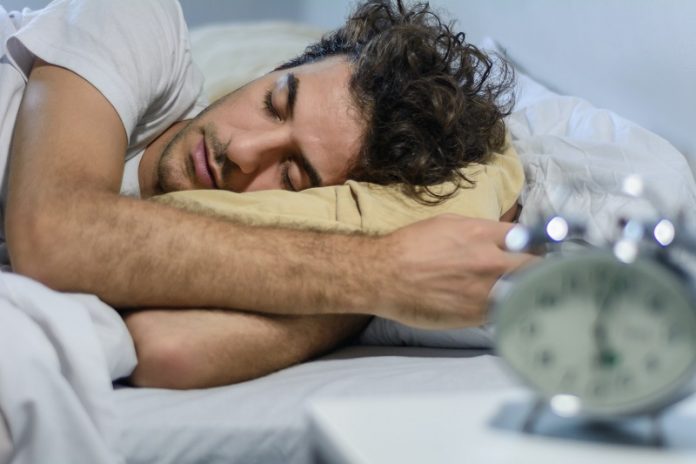
For many, insomnia is an invisible visitor, quietly disrupting their nightly rest, leaving behind a trail of fatigue and drowsiness.
But research from the American College of Cardiology introduces us to a darker shadow that insomnia casts – a significantly higher risk of heart attacks.
The Unsettling Findings
Yomna E. Dean, a medical student and researcher, along with her team, unearthed an alarming correlation: people who struggle with insomnia are 69% more likely to encounter a heart attack compared to those without this sleep disorder.
Moreover, if someone, notably with insomnia, sleeps for only five hours or less, they are treading on the path of highest risk towards a heart attack. If they have diabetes in addition to insomnia, the likelihood doubles.
This isn’t a minor issue to be shelved for later. Insomnia is the uninvited guest in the lives of an estimated 10% to 30% of American adults, with a higher occurrence in women.
Insomnia and Heart Health: What’s the Link?
Digging Through Vast Seas of Data
To construct their findings, Dean’s team dived into a wide pool of data, examining 1,226 studies from diverse global origins including the U.S., U.K., Norway, Germany, Taiwan, and China.
This encompassed data for a staggering 1,184,256 adults, a substantial 43% of whom were women and 13% of whom were insomniacs.
Heart Attacks Amidst the Weary
The canvas of data painted a clear image: heart attacks were not strangers to those with insomnia.
In the period of follow-up, which averaged nine years, 2,406 insomniacs experienced heart attacks compared to 12,398 in the non-insomnia group.
This relationship between insomnia and heart attacks held its ground even after considering various other factors like age, gender, additional health conditions, and smoking.
Notably, those with insomnia who also wrestled with high blood pressure, cholesterol, or diabetes were on an even steeper hill towards having a heart attack.
The Importance of Prioritizing Sleep
Crucial Hours of Rest
The threads of research tie together in agreement that a night of less than five hours of sleep leans towards a higher heart attack risk.
Dean stresses the vitality of securing seven to eight hours of sleep each night, not just for the bliss of rest but as a shield against heart health risks.
Sleeping Right, Sleeping Tight
Dean suggests, “Practice good sleep hygiene; ensure the room is dark, quiet, and cool, and keep devices away.”
Engaging in calming activities can pave the way for better sleep. If your eyes still flutter open in the silent hours of the night, it’s time to speak with a professional.
Peeling Back the Layers
Furthermore, their analysis took a deeper dive to explore if specific symptoms of insomnia were particularly tied to higher heart attack risks.
They found a 13% increased likelihood in those who struggled with initiating and maintaining sleep, while non-restorative sleep and daytime dysfunction did not showcase a similar link.
Where We Go From Here
In the echoing words of Dean, insomnia “is no longer just an illness, it’s more of a life choice.”
The findings send a ripple through our understanding, placing insomnia not merely as a disruptor of restful nights but as a potential predictor of heart health issues.
For our elders whispering tales of yesteryears, to the energetic youth with dreams bright as the stars, this calls for a universal pause and reflection: to place sleep not as the backdrop of our lives but as a pivotal actor on our life’s stage.
The embracing night, with its silent lullabies, might hold the key to more than just dreams, but a future of robust heart health.
The journey forward warrants a closer look, not just at the concealed implications of insomnia but at our collective attitude towards sleep, gently urging a shift from seeing it as a mere pause between days to respecting it as a critical player in our overall well-being.
This is where a new chapter could begin, where the quiet nights are allies of our heart, guarding against the unseen, yet potent risks lurking in the restless dark.
If you care about sleep, please read studies about herb that could help you sleep well at night, and these drugs could lower severity of sleep apnea by one third.
For more information about sleep, please see recent studies that coffee boosts your physical activity, cuts sleep, affects heartbeat, and results showing how to deal with “COVID-somnia” and sleep well at night.
The research findings can be found in Clinical Cardiology.
Follow us on Twitter for more articles about this topic.
Copyright © 2023 Knowridge Science Report. All rights reserved.



